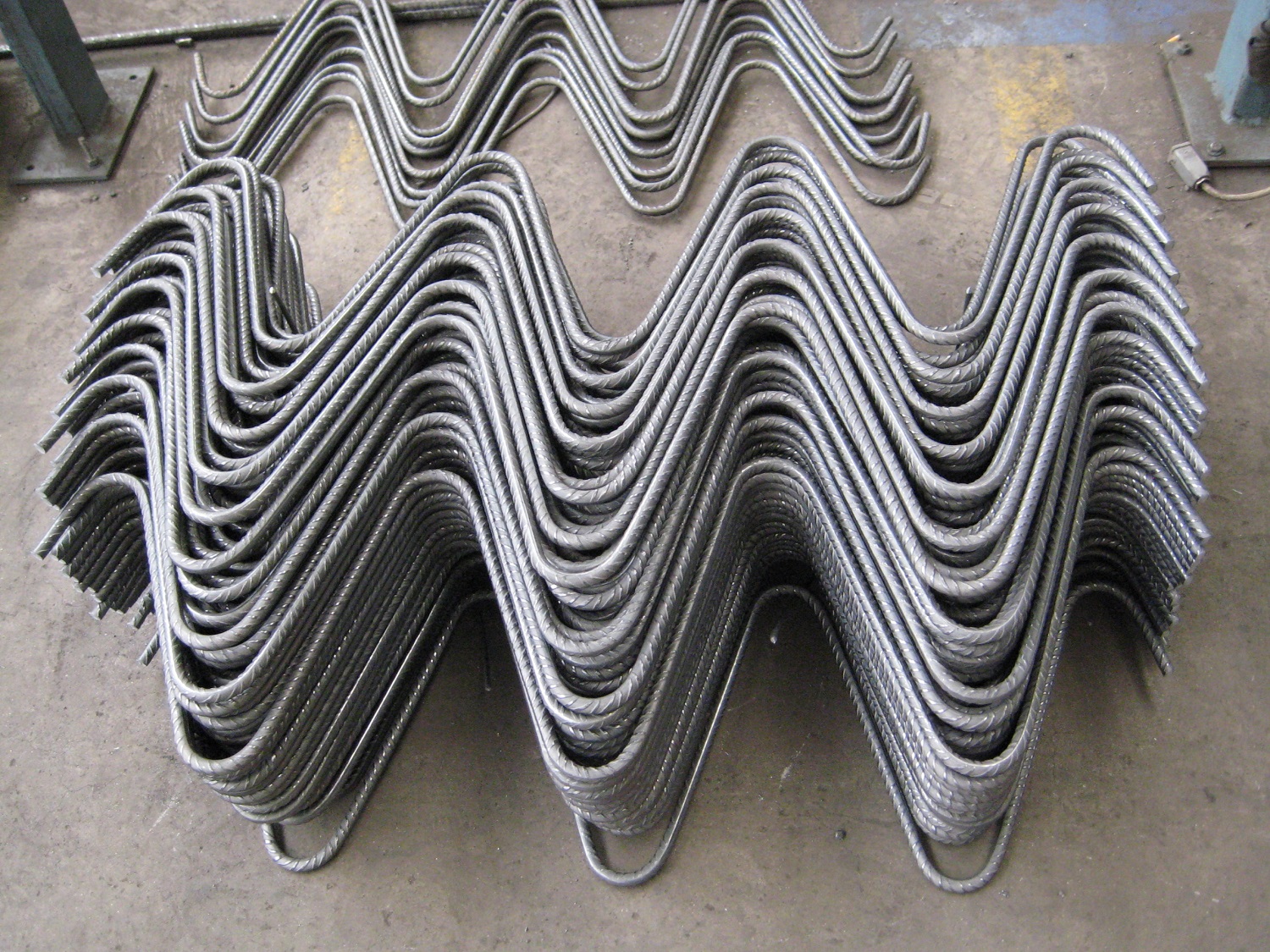DESCRIPTION
Unit elements (position of the plan) that configure the assembly of the concrete structures.
Manufactured from corrugated steel rolls or bars, obtained through a process of straightening, cutting and bending.
Carried out in fixed industrial plant and with a system of voluntary certification.
Suitable for use in works with execution control (decrease of action increase coefficients and subsequent savings in the total cost of the structural element).
Manufactured in accordance with the regulations in force in each country.
Manufactured with an Integrated Quality, Environment, Prevention and Occupational Risk Management System.
Requires traditional assembly and complements prefabricated reinforcements for the elements that are not pre-fabricated.
CHARACTERISTICS
Advantages of manufactured industrial reinforcements
Economic
Project execution cost
Reduction of the total cost of the structure.
Prefabricated Industrial Reinforcements are suitable for the control of execution, which involves significant savings in the construction.
Reduction of human resources and suppression of material means for producing and assembling reinforcements on site.
Reduction of the space needed for producing reinforcements and stockpiling commercial bars, fundamental in urban works.
Use of small lorries for delivery to urban works (contrary to what would be required to provide commercial bars).
Cost of non-quality during the life of the structure
Industrialisation standardises production, allowing minimum tolerances in measurements and angles, therefore not originating execution costs inherent in excess of tolerance.
Non-quality is the decisive cause of the problems that appear during the life of the concrete structures.
In the case of buildings, risk reduction can provide significant savings in the Guarantee and in its incidents.
Quality assurance
Manufactured according to a Quality Management System that ensures the requirements of the regulations in force in each country.
Plant Quality Director and Quality Coordinator for each work.
Welding and electrowelding in accordance with the regulations in force.
Traceability System: The following are recorded in the database of each works and for each position of the drawings: data of the casting of all commercial steel used, and specific parameters of the manufacturing processes and operators who have taken part.
Delivery of technical documentation: With regard to the raw material used, to manufacturing processes, and the reinforcements served.
Guarantee Certificate: document enclosed with the delivery note of each shipment.
Check-list, which is enclosed with the previous documents, which indicates the controls carried out in the plant itself on the specific reinforcements of each shipment.
Improvements in Health and Safety
Work in the industrial plant facilitates control of the risk and allows implementation of an occupational risk prevention management system.
Decreasing human resources reduces the number of accidents.
Improvements in the Environment
As a result of production the fixed industrial plant.
The waste generated in industrial facilities is correctly managed.
There is a decrease of the remains of leftover materials on site, and of noise pollution in urban areas at the time of the manufacture in the industrial plant.


